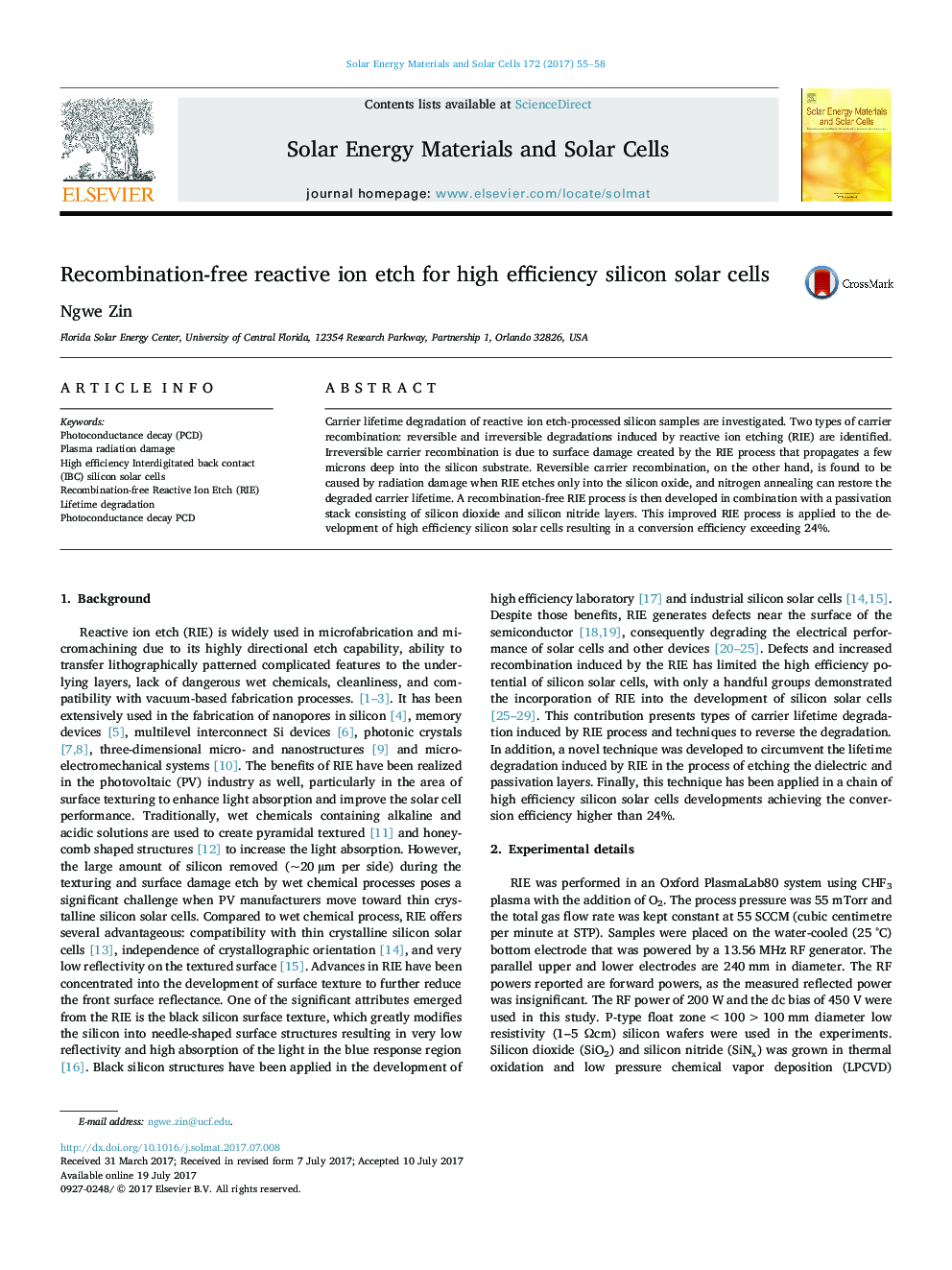| Article ID | Journal | Published Year | Pages | File Type |
|---|---|---|---|---|
| 6456869 | Solar Energy Materials and Solar Cells | 2017 | 4 Pages |
â¢Reversible and irreversible carrier lifetime degradation of silicon samples induced by RIE were uncovered.â¢Irreversible carrier lifetime degradation of SiO2 passivated silicon samples occurs when RIE etches through the silicon.â¢Reversible carrier lifetime degradation induced by RIE is due to radiation damage, which is recovered by N2 annealing.â¢LPCVD SiNx layers are highly resilience to plasma radiation.â¢A recombination-free RIE process was developed and applied in the development of high efficiency silicon solar cells, with efficiency >24%.
Carrier lifetime degradation of reactive ion etch-processed silicon samples are investigated. Two types of carrier recombination: reversible and irreversible degradations induced by reactive ion etching (RIE) are identified. Irreversible carrier recombination is due to surface damage created by the RIE process that propagates a few microns deep into the silicon substrate. Reversible carrier recombination, on the other hand, is found to be caused by radiation damage when RIE etches only into the silicon oxide, and nitrogen annealing can restore the degraded carrier lifetime. A recombination-free RIE process is then developed in combination with a passivation stack consisting of silicon dioxide and silicon nitride layers. This improved RIE process is applied to the development of high efficiency silicon solar cells resulting in a conversion efficiency exceeding 24%.
